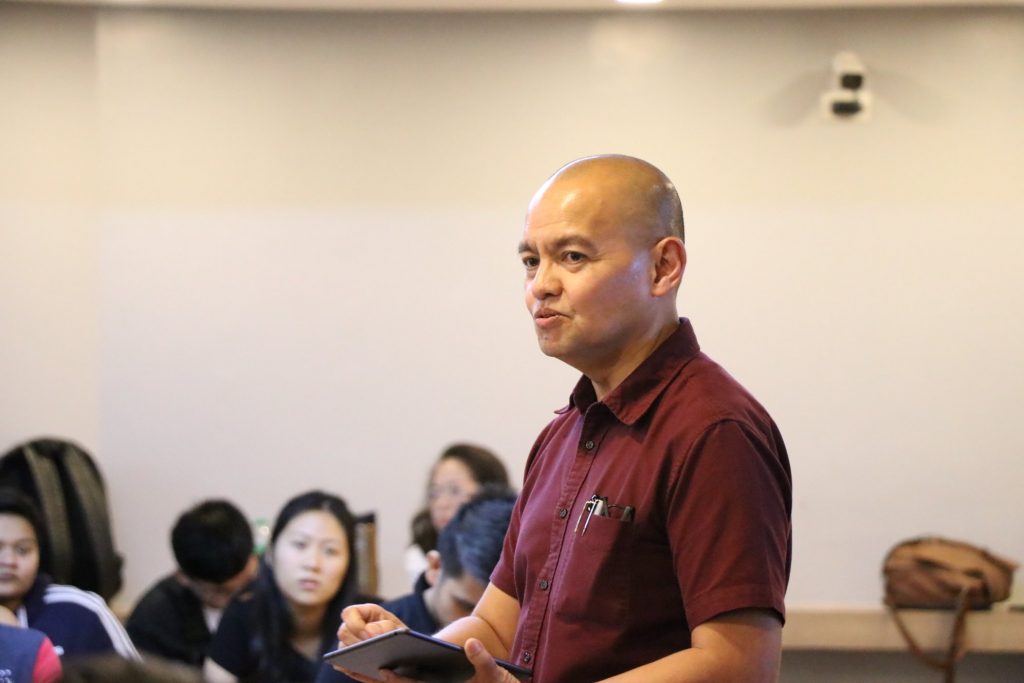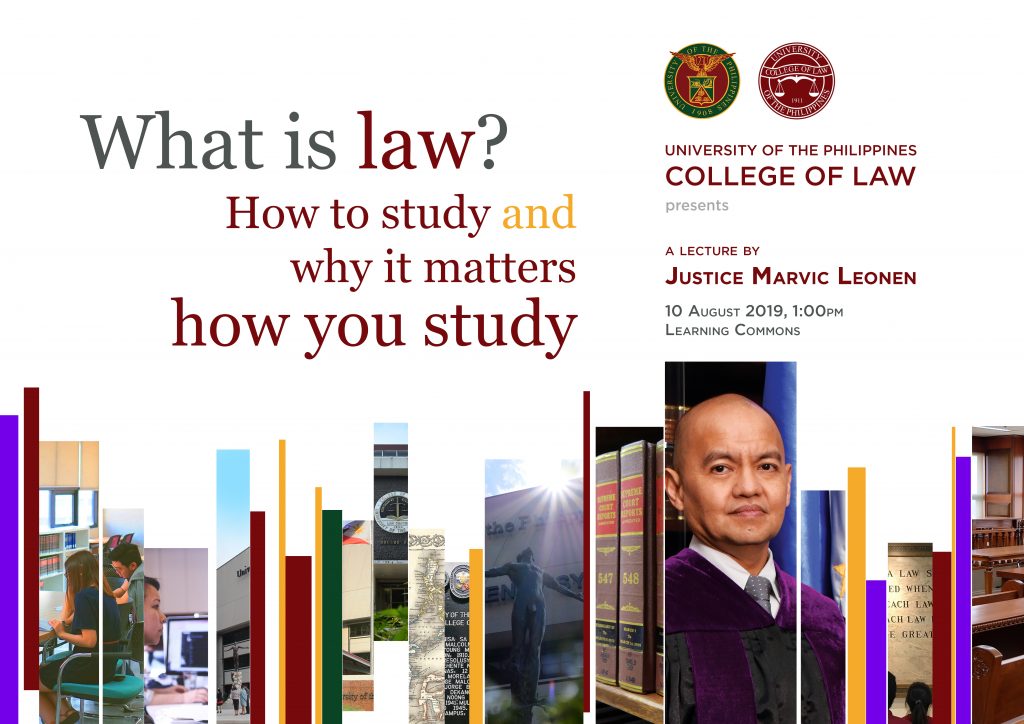What is Law?: How to study and why it matters how you study
On August 10, 2019, a rainy Saturday afternoon, the UP College of Law hosted a kapihan session entitled “What is Law: How to study and why it matters how you study”. It’s guest of honor and speaker was Supreme Court Associate Justice Mario Victor F. Leonen who is also a former dean of the college.

“You cannot be a revolutionary if you are not a master of Law” began Justice Leonen’s discussion. He emphasized that UP lawyers must know the law well enough to see its interstices and loopholes so that he can address them. In order to create lasting positive change, the UP lawyer must be a master of law. That mastery of the law is rooted in understanding its context and applying logic to the study of it.
For law to be understood in context, according to Justice Leonen, the student must keep in mind that all law is created by human beings. Like all other human creations, it is susceptible to human failings. Thus, what is legal is not necessarily just. Oftentimes what is legal is a tentative temporary accommodation made to concretize a ruling power. Law is also violent, to quote Rovert Cover, as once you know the law, you can turn the entire machinery of the State in favor of your client. But ultimately it is the people who matter. Thus, Justice Leonen cautions, while the Supreme Court is final, it is not infallible.
With that context in mind Justice Leonen offered some reminders to help students in their study of the law. First, that every victory is tentative and that life is impermanent. The law student must not rest on his laurels nor wallow in his defeat, he must continually prepare for all fights ahead. Second that the universe does not owe you anything. One’s fate in UP Law is in her own hands and should not be left to chance. Third, that the student should practice active studying. Before starting to read, the student should ask himself questions about the topic and the particular readings which he hopes to answer by reading. Then after he has finished reading he must simulate recalling the information from the readings. Where there are gaps in memory or understanding will guide subsequent readings. For the Justice, efficient study periods in this manner will always trump blindly going through multiple readings.
Below are an additional 12 things that Justice Leonen recommends law students remember to study efficiently.
1. Do the Work
2. Always privilege recall
3. Focus. Live [ and study] in the present
4. Have a good life
5. Work the system but remain critical
6. Train your mind and not your digital device
7. Keep Fit.
8. Always find a way to inspire yourself
9. Write, keep on writing. Read, keep on reading.
10. Learn to be Humane
11. Your values are always important
12. Do not lose your Authenticity in the college
To emphasize his advocacy of integrity Justice Leonen echoes the words of Philippine Hero Lean Alejandro that “the line of fire is always a place of honor”. In Closing, the Justice reiterated the clarion call popularized by Philippine Hero Ditto Sarmiento “Kung di tayokikilos, sino ang kikilos? Kung hindingayon, kailan pa?”








































































































 on the upper right corner to select a video.
on the upper right corner to select a video.